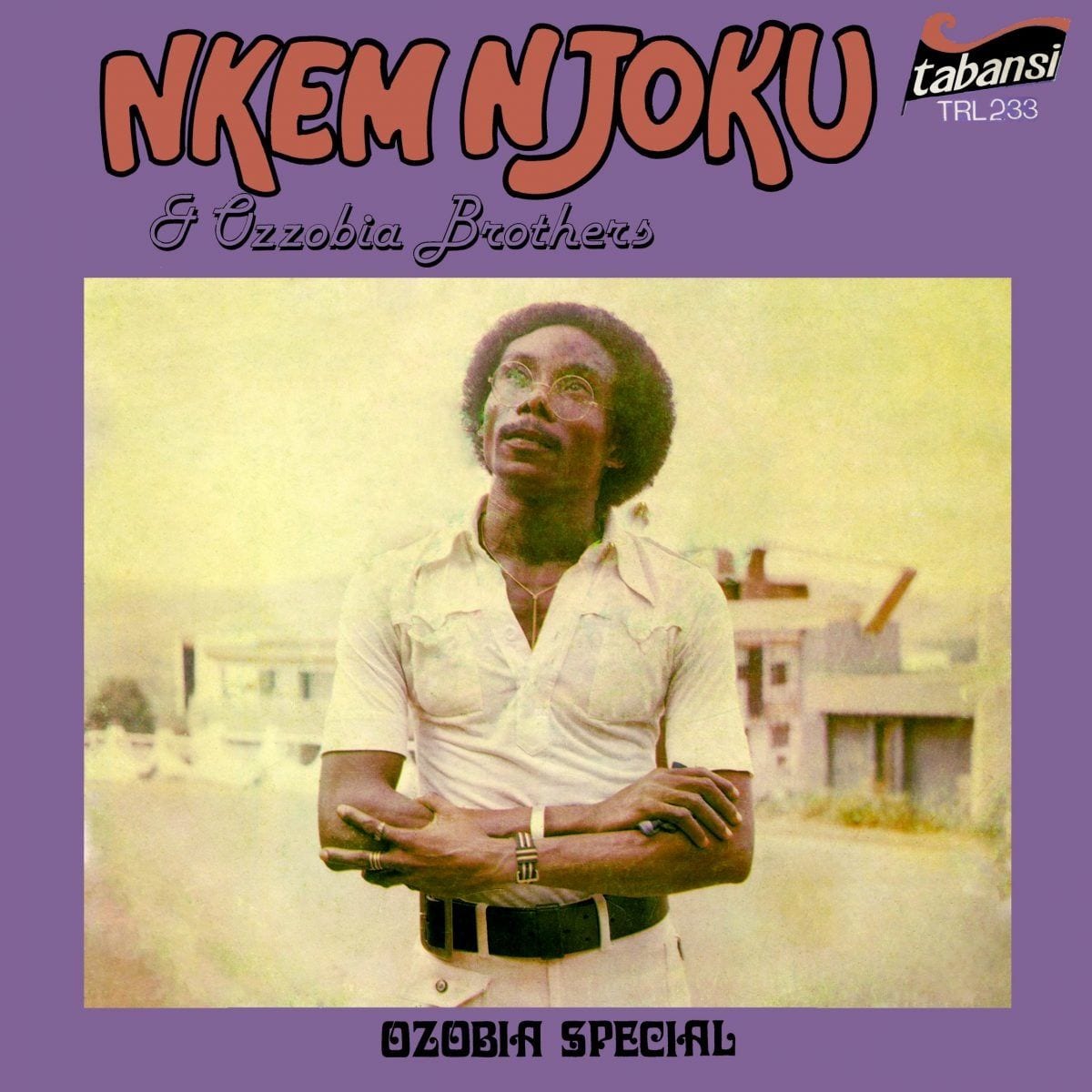
Good highlife sounds like a great summer feels, and whether or not you’re on track for the latter, it’s fortunate that there’s plenty of the former to go around. This year that includes Ozobia Special, a recent reissue from vinyl label BBE that introduces us to Nigerian ensemble Nkem Njoku and the Ozzobia Brothers. This is their early 1980s release, and it was a then-contemporary take on one of the most famous West African musical genres of the 1950s.
The group’s only album with Njoku leading, Ozobia Special is soulful, upbeat, and synth-heavy, the latter quality thanks to keyboardist and producer Jake Sollo, whose importance to this record cannot be overstated. It is unequivocally this emphasis on space-age electronics that sets Ozobia Special apart from the myriad other fine highlife reissues already on the market, with the album’s b-side particularly rife with them.
That’s not to say that Njoku and his band (notably including percussionist Friday Pozo and jazz trumpeter Ray Stephen Oche) need to reinvent the wheel when it comes to highlife. There’s a timeless joy to the looping guitars and soulful call-and-response vocals of Ozobia Special that is best because it springs from a straightforward adherence to genre conventions. The eponymous opener is a perfect example of this, as is sunny second track “Ofu Obi”, an instant classic on which Sollo’s vibrating keyboards have their moment but leave plenty of space for Oche’s glorious brass and Njoku’s warm vocals. Immediately following, “Osula Nwa Eje Ubi Eje Oba” sees an uptick in keyboard prominence, a lithe, rising synth line backing fast-paced brass ostinati. A particularly strong sense of playfulness makes this one of the album’s most exciting cuts, each element in constant, hurried motion.
Turn the record over, though, and you’ll encounter the album’s most substantial track: “Ije Eluwa”, a nearly eight-minute piece that opens with solid brass bombast before quickly building momentum. Sollo’s synths rise, setting the tone with transcendental intensity, as intricate guitar lines roll forth, a brilliant constant for the rest of the piece. Chimes, voices, and drums interweave within this framework, moving parts in an impressive balancing act swept up every so often by one of Sollo’s mighty waves.
“Akwa Obi” is a soulful pop piece to which Njoku and his backing singers bring vocal gravitas. The weighty, swaying melody that repeats throughout has a serenity at its core, even as drums move in quick orbit. In contrast, closing track “Egwu Oyoliba” makes for a light finish, one tinged with whimsy by way of the percussion and keys, a sugar-sweet piece of electric highlife.
Though its roots lie in highlife, Ozobia Special is no average vintage reissue. What sets it apart is what it draws from its moment: 1980s Nigeria, a time of increasing globalization and production values, of worldwide musical movements away from the old and toward the plugged-in. From the vantage point of the present, it’s sometimes hard to decide whether it feels cutting-edge or simply quirky. In either case, though, it’s fun, a worthy and innovative addition to any DJ’s block party record kit.

